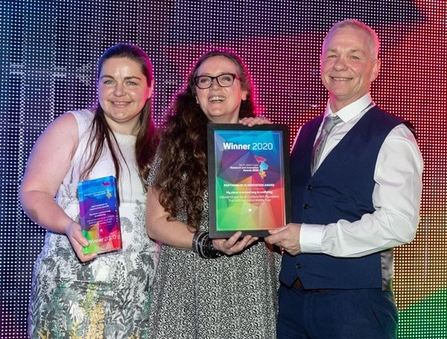What does your role involve?
As Director of Nature and Wellbeing I am passionate about how nature can have a direct impact on our health and wellbeing. Having personally felt the benefits of contact with nature, and seeing so many people experience, sometimes for the first time, the effects of nature on their wellbeing, I am driven to promote why nature is fundamental for our health, why we need to do more to halt nature’s decline, and why it is so important that we help everyone to have the opportunity to reap the benefits of contact with nature.
Key projects that I oversee to help engage people with nature include Myplace, Carbon Landscape, volunteering, and I am currently leading the Greater Manchester Environment Fund. I truly believe that if we are to reach as many people as possible we need to campaign for a green economy, accessible greenspaces in our towns and cities, nature incorporated into new development, and work at a landscape scale to achieve our Wilder 2030 ambitions where a third of our land and sea is managed for wildlife. Now is the time to seize the opportunity, as we come out of the pandemic, to build a healthier, stronger and wilder future.
How long have you worked for The Wildlife Trust?
22 years. I started as a Project Officer engaging local people in the designation and management of local Nature Reserves. This work remains so important for me as our local Nature Reserves are those places that are special for wildlife but are also accessible and close to where people live. I supported the Wildlife Trust to secure funding for project staff to work on a variety of local Nature Reserves across Lancashire, Greater Manchester and North Merseyside, and our work expanded to include other urban greenspaces where we recognised the importance of bringing derelict, underused and neglected land back into productive use as a community asset where people felt re-connected with nature.
What did you do before?
Before I worked at the Wildlife Trust I travelled the world and volunteered on a number of conservation projects in the Appalachian Mountains in America, New Zealand and Australia. Before that I volunteered for a number of charities including TCV, CPRE and the Derbyshire Rural Community Council which gave me the skills and experience to get me my dream job with the Wildlife Trust.


